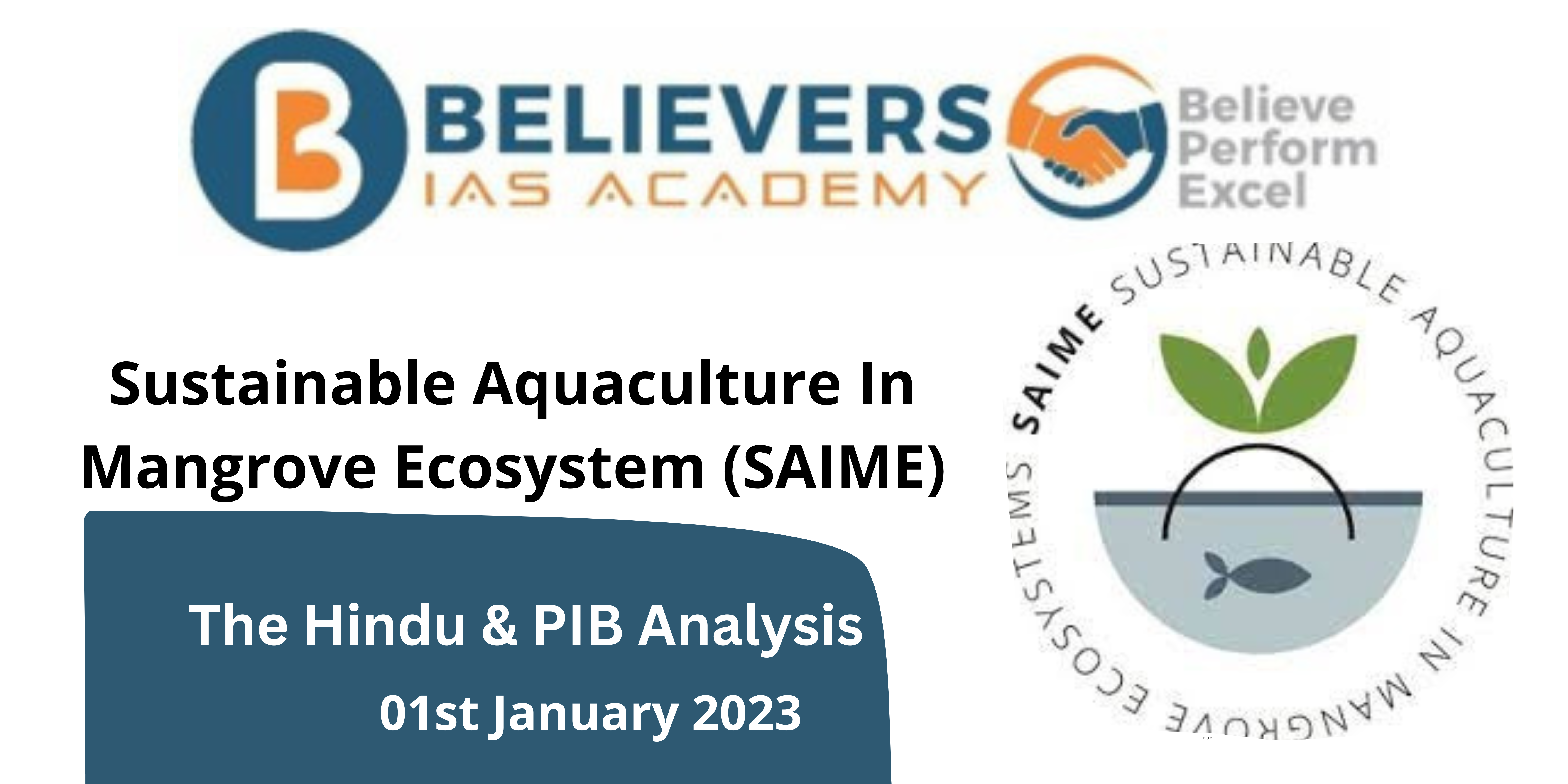Sustainable Aquaculture In Mangrove Ecosystem (SAIME)
#GS-03 Sustainable Development
For Prelims
Sustainable Aquaculture In Mangrove Ecosystem (SAIME)
- SAIME is an ecosystem-based sustainable aquaculture model integrating mangroves.
- Its aim is to restore mangroves and augment the livelihood of the coastal communities.
- This project also aims to bring a change in the shrimp trade by bringing a transformative change in the existing value chain through the use of dialogue exchange model.
- The project has been implemented in India and Bangladesh in collaboration with Global Nature Fund (GNF) in association with Naturland e.V, Germany, and Bangladesh Environment & Development Society (BEDS), Bangladesh.
For Mains
Objectives of the Project:
- Creation of national, regional, and international dialogue structures through a functioning Multi-Stakeholder Partnership (MSP).
- This will promote more sustainable forms of production of shrimp and other aquaculture organisms in India and Bangladesh.
- To adopt a model to demonstrate Integrated Mangrove Aquaculture (IMA) in the Sundarbans
- Capacity creation among the existing brackish water aqua-culturists for doing IMA
- To create a standard practice in the culture methodology of integrated brackish water aquaculture integrating Penaeus monodon as a candidate species
- To form farmers’ institutions in order to integrate aquaculture produce from IMA into the value chain.
- This will allow for better bargaining power and connect the small and medium farmers to both domestic and international
- To identify the scope of reduction of blue carbon emissions associated with shrimp farming and brackish water through the integration of mangroves since they are a major carbon-sequestering species.
Expected Outcomes of the Project:
- Formation of a well-structured value chain for shrimp trading established through dialogue exchange.
- Reduction in Anthropogenic pressure on the natural fisheries source.
- Increase in coverage of Mangrove
- Augmented livelihood through climate-adaptive shrimp farming with a better price for marginal farmers through collective bargaining
- Reduction in blue carbon emissions
- In the event of water flooding as a result of sea-level rise in the future, the areas would still have a standardized protocol with clear benchmarks for economic activity




